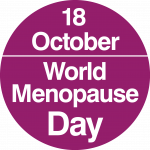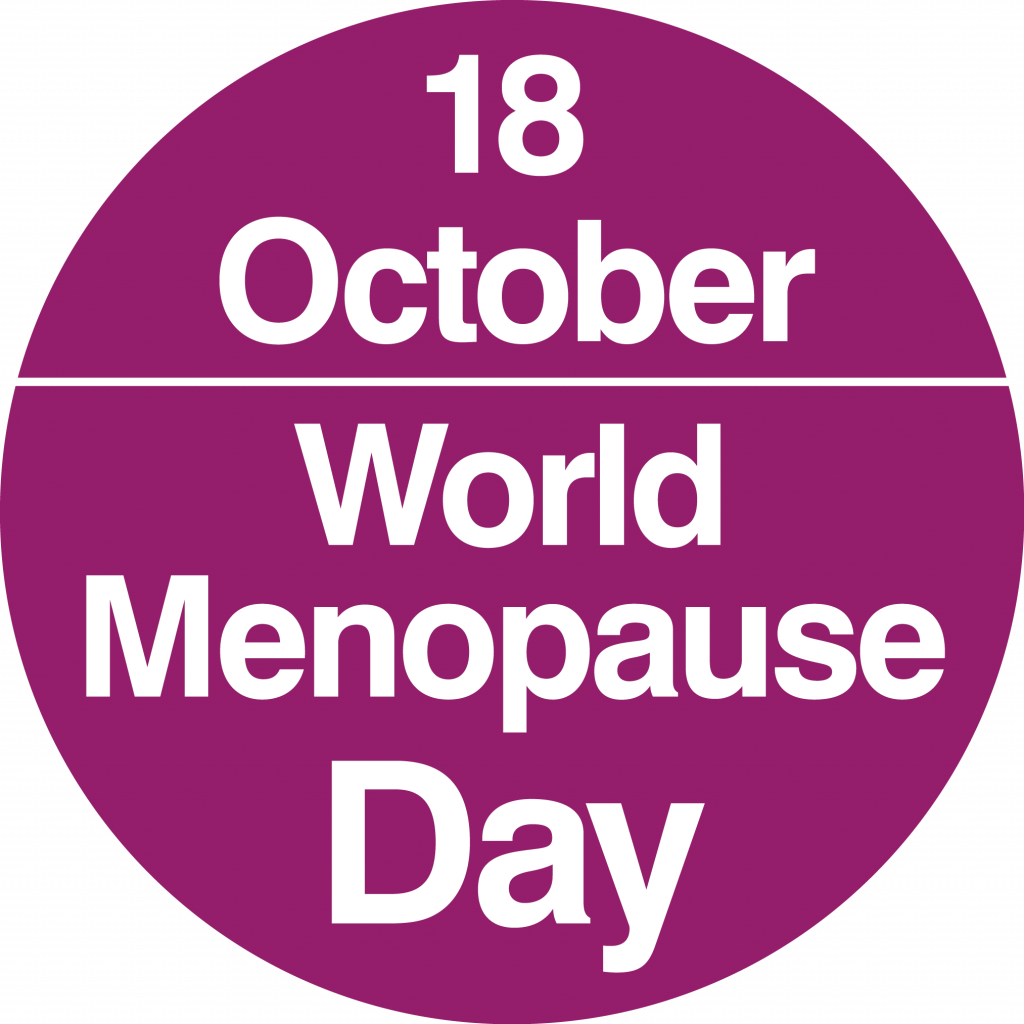
Today, 18th October 2023, is World Menopause Day. It’s the now annual discussion on the impact that menopause has for the individual in the workplace, in the family and in our communities.
Last year some colleagues and I ran a workshop at the 2022 BASW event ‘Changing the Change’, and the previous year I teamed up with Siobhan McLean and colleagues with my own personal A-Z of menopause and women’s health more generally. So, this year I thought that a good way to mark the day and do something a little different to usual, I would make a little visit to the woodland to talk menopause with fellow elves of all descriptions.

If you go down to the woods today… you’ll find a group of menopausal elves discussing what works for them
Doing a little search across the usual databases I came up with a handful of papers, all in the last year which considered the menopause experience, and so over the next couple of days we will be highlighting some of the key findings and discussions and thinking about what these might mean for social care and social work. It is a big subject with increasing controversies in the discussions around it and we are seeing issues such as equality, diversity and intersectionality causing tensions between different interest groups. We will explore some of these issues this week, but we are starting with a systematic review to ease us in gently.
It’s not the first time menopause has been an evidence-based practice blog subject, as my woodland cousin reminded me when we were talking about this series. @SarahChapman30 over at the Evidently Cochrane blogs, ran a series first published in 2015, and last updated in 2022, looking at different experiences on the menopause from different guest bloggers, well worth a look if you haven’t discovered these already).
The first paper this elf selected was not for any scientific reason other than it talked about what worked as well as what the experience was, and I was interested in what it had to say.
While published in a health journal rather than a social care one, it is often worth exploring the literature beyond your own discipline when it comes to issues such as this. Interesting papers are cross-disciplinary, and this one was chosen because it was a review of the available evidence rather than a small qualitive study. For those of you that don’t live and breathe this stuff, a systematic review is a comprehensive and methodical literature review which uses repeatable methods to find, select and synthesise the available evidence. It aims to answer a specific research question and states the method used to get to that answer. In the case of this paper by Rodrigo and colleagues (2023) the aim is to ‘describe the range and effectiveness of workplace-based interventions for menopause’ and it considers the available evidence in relation to the three of the most common interventions identified – self-help CBT, Raja Yoga and Health Promotion.
It is worth remembering that menopause understanding and the studies examining it are relatively new, and considering it within the workplace, including the concept that employers have a responsibility to support those experiencing it are even more recent. Because of this there is a lot of opinion and experience pieces published, but a bit of a gap in terms of robust research in the area (cue a whole mutter about women’s health not being taken seriously or given as much priority or emphasis as other areas of medicine, but that’s a discussion for another day).

Opinion and experience pieces are commonly published, but what works to support women to manage symptoms (or even to take them seriously) are a little vague.
Methods
The researchers set out their search strategy and methods clearly within the paper, identifying the databases used, the date ranges that were applied, and the key words used to search. To be included in the review, the study needed to examine interventions aimed at improving physical or mental wellbeing, occupational outcomes, or awareness and attitudes among participants, with primary outcomes being wellbeing, secondary outcomes workplace/job based, and the third relating to workplace cultures.
From an initial study sample of 952 results, papers were reviewed firstly for relevance and duplicates, reducing the selection to 79 papers. Next the selections were reviewed by their abstracts, which reduced the number to 11 on which a full text review was completed by two researchers. Of these 11, another 6 were excluded as they did not meet the criteria to be included (i.e., the study did not explore workplace-based interventions for menopause). The final selection included 5 papers which included 354 participants, 293 women in menopause, and 61 managers/supervisors. The studies were screened for quality as well as relevance, and the five papers were then used to generate a narrative synthesis of the findings and outcomes.
The studies included one was in Brazil (Raja Yoga), two in the UK (CBT & Health Promotion), one in Eritrea (Health Promotion), and one in the Netherlands (Health Promotion). This tells us that it this is a subject that is being studied internationally, but that there are different approaches being used in different places. From a social care perspective, it is important to think about not just what might work to improve the symptoms for an individual, but also the context in which different interventions might work and the types of attitudes and beliefs are attached to the experience of menopause in different environments.

Attitudes and awareness in the workplace are attached to the experience of menopause for those experiencing symptoms. Context is important.
Results
The researchers identified that the two studies that use randomised controlled trials provided the most robust evidence but that there is also important learning within the non-randomized and qualitative studies.
The three intervention types all showed improvement in participant self-reported symptoms. Self-help CBT was identified as the most effective support for presenteeism in the workplace and the studies included identified it as the only intervention leading to positive work outcomes. From the other two types of interventions included in the review, Yoga was shown to improve self-rated wellbeing among participants within one study, and health promotion and awareness programmes in two of the included studies shown to improve knowledge and attitudes of both the individual and their colleagues towards symptom management in the workplace.

All the intervention types showed improvement in self-reported symptoms, but self-help CBT was identified as the most effective tool to support presenteeism in the workplace.
Conclusions
The researchers conclude that whilst there is a lack of evidence currently published looking specifically at interventions and their effectiveness, from those that have so-far been examined CBT appears to be the one that shows the most promise, concluding that:
“This review supports self-help CBT as an intervention that can be employed at work settings to alleviate menopausal symptoms and to improve work outcomes… [and] was identified as the only intervention leading to favourable work outcomes.” (Rodrigo et al, 2023; p.105)
Strengths & Limitations
The researchers identify several limitations in the methodology of both their own review, and also in the available literature more generally. When rating the included papers, the study used the Down’s & Black (1998) tool which uses yes/no questions to rate the study in five areas and provide a final score. The areas considered include – quality, validity, bias, selection bias and power of the study. It’s a similar tool to the ones we use down in the woodland from the critical appraisal skills programme (CASP) to assess the validity and reliability of research papers we include in this, and the other woodland blogs. From the five studies that were finally included, they scored between 13 – 20 out of 27, with the two randomised controlled trials scoring higher but not being able to reduce bias or use ‘blinded’ methods to achieve greater validity. What we don’t know from the evidence presented is whether demographics, types of workplaces and the impact a range of social factors (age, race, gender, sexuality, disabilities) might have on the experience for the individual concerned (we’ll be coming back to this in tomorrow’s blog for those of you who are interested in the discussions and debates about intersectionality and the menopause experience).
One of the key limitations of this review is that the studies included in the review are not consistent in the content of interventions or what they were measuring. Several of the studies examined self-help, focusing on how the woman feels about and manages her own symptoms in the workplace, which might be subject to a wide range of variables and influences (including the attitudes of those around her both at work and at home) and all three used self-report measures of different variations. These differences mean that validity and reliability of the findings are not consistent across the included studies, and this may (or may not) impact upon how findings and outcomes are reported and presented.
Despite the limitations, this review is helpful as it shows us what the gaps in the research as well as an overview of the findings of the limited number of studies that have been carried out so far.
Implications for Practice
One of the reasons why this study is relevant is that we know that menopause symptoms can affect our ability to function, and we need to keep talking about it and thinking about how we support people to manage their own health and wellbeing in the workplace setting. Cognitive Behavioural Therapy (CBT) is one of the government’s favorites and is part of the NICE guidance – it’s cheap, easy to deliver on mass (especially when self-help is the delivery mechanism) and has been shown to be effective for a whole range of symptoms and conditions. Is it the best way to manage menopause symptoms? For some things yes it can and can make a difference (as can Yoga as this paper suggests); however there is no such thing as a one-size fits all menopause, and so all the options need to be part of the toolkit.
So, why does it matter for social care?
It matters because… a significant amount of the workforce are women, and we are an aging population, so lots of us are menopausal. For example, recent workforce surveys place the average age of an adult social worker at 45, with between 70% and 81% of the workforce identifying as female (LGA, 2023; Skills for Care, 2023), that’s a significant amount of most social care teams.
It matters because… it is estimated that around 13 million people are currently peri menopausal or menopausal in the UK (NHSE 2022), that’s a third of the female population and a significant proportion of both the workforce and the people accessing social care services…
It matters because… menopause symptoms can mess up your physical and mental health, and both workers and those accessing social care services can be impacted by symptoms that can make you feel like you aren’t coping with daily tasks and your body is no longer following the instructions you are giving it.
It matters because… whether it is the horror of hot flushes in the middle of a meeting, or adverts for Tena lady on the telly (**other ‘bladder weakness’ aids are available) that are a little too close for comfort some days, shame and embarrassment accompany being menopausal for many women.
It matters because…whilst you might be able to CBT your way into positive thinking, what you can’t always do is change the symptoms or the impact they can have on your day-to-day life. The studies identified seem to support the idea of the problem being located in the woman, rather than in the workplace context in which she is operating. Often the only thing you can do is change your response to the symptoms when they happen, and so while it is progress that we can say some of this outloud, I personally still think we are a long way from menopause being something other than a ‘woman’s problem’.
Overall, this study shows that the evidence about managing menopausal symptoms in a workplace setting is still very poor, focusing on ‘fixing’ the woman and ‘teaching her’ to manage her own symptoms rather than taking a societal or systemic view of how we could better approach or respond to the menopause more generally. As a menopausal elf I don’t need fixing, but I do need to be able to write myself post-it notes so I remember things and open the window without having to justify my body temperature or deal with ‘woman of a certain age’ cracks from others, neither of which are big asks in the scheme of things surely, and neither of which I can achieve by self-help CBT.
Conflicts of Interest
None (unless being a menopausal elf counts as a conflict of interest).
Links:
Primary Paper:
Rodrigo, C.H., Sebire, E., Bhattacharya, S., Paranjothy, S., & Black, M. (2023) “Effectiveness of workplace-based interventions to promote wellbeing among menopausal women: A systematic review.” Post Reproductive Health, 29 (2), 99-108.
Other References:
Downs, S.H. & Black, N (1998) “The feasibility of creating a checklist for the assessment of the methodological quality both of randomized and non-randomised studies of health care interventions.” J Epidemiol Community Health, 52, 377-384.
LGA (2023) Menopause Factfile [Online], Accessed 16/10/2023. Available at: https://www.local.gov.uk/our-support/workforce-and-hr-support/wellbeing/menopause/menopause-factfile
NHS England (2022) Menopause in the workplace. [Online], Accessed 17/10/2023. Available at: https://www.engage.england.nhs.uk/safety-and-innovation/menopause-in-the-workplace/
NICE (2015; updated 2019) Menopause: Diagnosis & Management. NICE Guideline [NG23] [Online], Accessed 17/10/2023. Available at: https://www.nice.org.uk/guidance/NG23
Skills for Care (2023) “The State of the adult social care sector and workforce in England” [Online], Accessed 17/10/2023. Available at: https://www.skillsforcare.org.uk/Adult-Social-Care-Workforce-Data/Workforce-intelligence/publications/national-information/The-state-of-the-adult-social-care-sector-and-workforce-in-England.aspx
Photo Credits
- Photo by Anja Bauermann on Unsplash
- Photo by British Menopause Society
- Photo by Brett Jordan on Unsplash
- Photo by Kyle Glenn on Unsplash
- Photo by Conscious Design on Unsplash

Thank you, Daisy Long, for shedding light on the important topic of menopause in the workplace. The woodland metaphor added a unique touch to discussing research findings. It’s encouraging to see a systematic review on workplace-based interventions for menopause. I’m curious about your thoughts on how organizations can better integrate these findings into their policies and practices to create supportive environments. Looking forward to more insightful blogs on navigating menopause in different contexts!